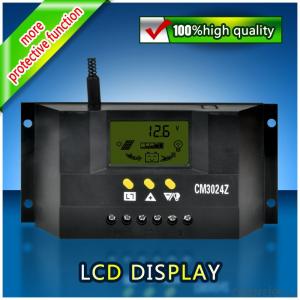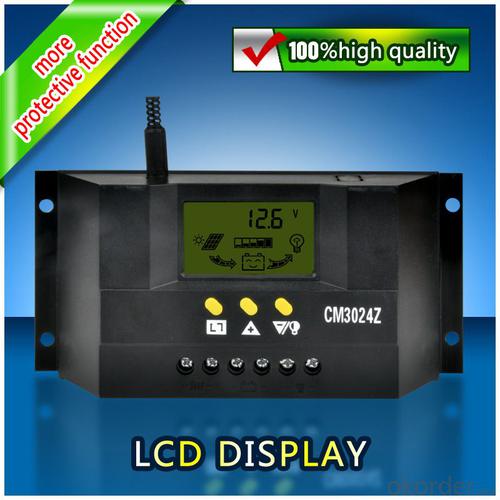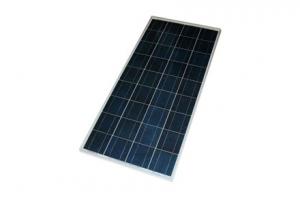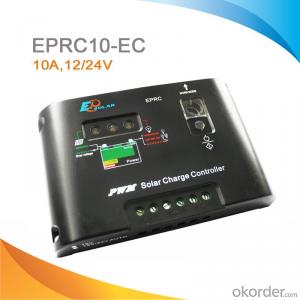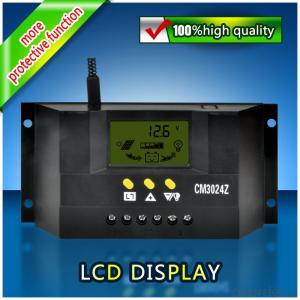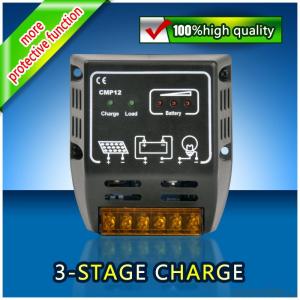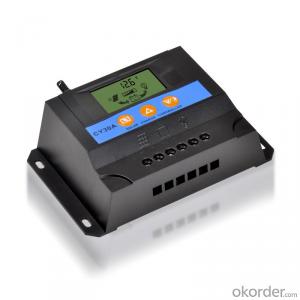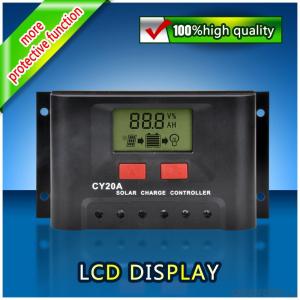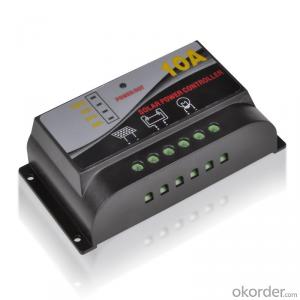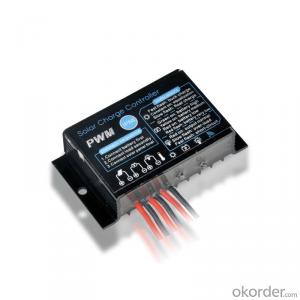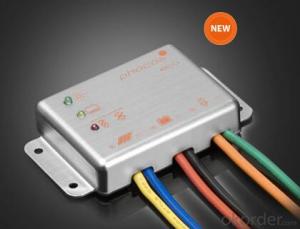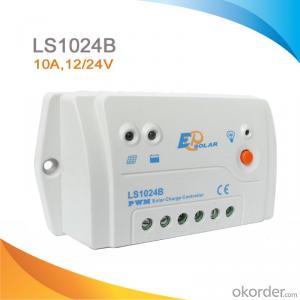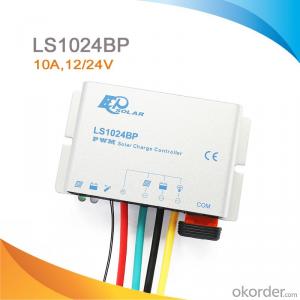Solar Controllers from Malaysia Supplier - Solar LCD Controller CM5048Z with Best Price
- Loading Port:
- China main port
- Payment Terms:
- TT or LC
- Min Order Qty:
- 1 unit
- Supply Capability:
- 10000 unit/month
OKorder Service Pledge
Quality Product, Order Online Tracking, Timely Delivery
OKorder Financial Service
Credit Rating, Credit Services, Credit Purchasing
You Might Also Like
Solar LCD Controller CM5048Z
Selection of high-quality materials properties be consistent from beginning to end
High Quality, High Performance.
For life is a convenient
A little more secure
The innovation design idea of the perfect show
The first set of people-oriented
The high-end configuration components
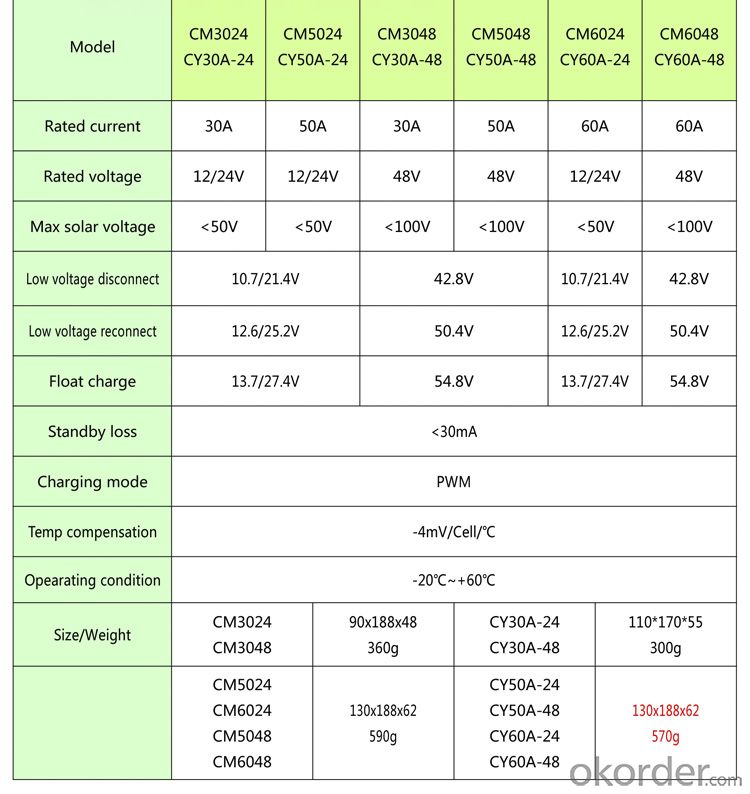
- Q: What is the maximum load temperature a solar controller can handle?
- The maximum load temperature a solar controller can handle varies depending on the specific model and manufacturer. It is important to consult the product specifications provided by the manufacturer to determine the maximum load temperature for a particular solar controller.
- Q: Can a solar controller be used with a solar-powered irrigation system?
- Yes, a solar controller can be used with a solar-powered irrigation system. The solar controller helps regulate the charging and discharging of the batteries in the solar-powered system, ensuring efficient use of solar energy to power the irrigation system.
- Q: Can a solar controller be used with a solar-powered heating system?
- Indeed, a solar-powered heating system can make use of a solar controller. This device, recognized as a charge controller, bears the responsibility of managing and overseeing the electricity's passage from the solar panels to the heating system. Its primary function is to guarantee that the solar panels operate at their utmost efficiency, while preventing any potential overcharging of the batteries or the entire system. Through the utilization of a solar controller, the solar-powered heating system can effectively harness the sun's energy and evenly distribute it among the heating components, thus ensuring optimum performance and maximizing energy conservation.
- Q: How does a solar controller protect the batteries from over-discharging?
- A solar controller protects batteries from over-discharging by constantly monitoring the state of charge (SOC) of the batteries and regulating the flow of energy between the solar panels and the batteries. When the SOC reaches a certain low threshold, the controller will automatically disconnect the batteries from the charging source, preventing any further discharge. By cutting off the power supply at the right moment, the controller ensures that the batteries are not depleted beyond their safe limits, which can cause irreversible damage and reduce their lifespan. This feature is crucial for maintaining the health and longevity of the batteries in a solar power system.
- Q: How do I prevent short-circuiting with a solar controller?
- To prevent short-circuiting with a solar controller, there are a few important steps you can take: 1. Proper wiring: Ensure that all wiring connections are securely tightened and properly insulated. Loose or exposed wires can increase the risk of short-circuiting. Use high-quality cables and connectors that are rated for the current and voltage of your solar system. 2. Fuse or breaker protection: Install appropriate fuses or circuit breakers in the positive and negative connections between the solar panels, controller, and battery bank. These protective devices will automatically disconnect the circuit in case of a short-circuit, preventing any damage to the controller or other components. 3. Regular maintenance: Inspect your solar system regularly for any signs of wear, damage, or loose connections. Clean the panels to ensure maximum efficiency and remove any debris that could potentially cause a short-circuit. 4. Proper grounding: Ensure that your solar system is properly grounded. This involves connecting the negative terminal of the battery bank to a grounding rod. Grounding helps to dissipate any stray electrical charges and reduces the risk of short-circuiting. 5. Use an appropriate solar controller: Make sure you select a solar controller that is suitable for your specific solar system configuration and its maximum current and voltage requirements. Oversized or undersized controllers can increase the risk of short-circuiting. 6. Follow manufacturer guidelines: Always consult the manufacturer's instructions and guidelines for your specific solar controller. They often provide specific recommendations and precautions to prevent short-circuiting and ensure the safe operation of your solar system. By following these preventive measures, you can greatly reduce the potential for short-circuiting in your solar controller and ensure the efficient and safe functioning of your solar power system.
- Q: What is the role of temperature compensation in a solar controller?
- The role of temperature compensation in a solar controller is to adjust and regulate the charging and discharging of the batteries based on the temperature conditions. This is important because temperature affects the performance and lifespan of the batteries. By compensating for temperature variations, the solar controller ensures optimal charging and prevents overcharging or undercharging, which can damage the batteries.
- Q: Can a solar controller be used with a solar-powered electric vehicle charging station for multiple vehicles?
- Yes, a solar controller can be used with a solar-powered electric vehicle charging station for multiple vehicles. A solar controller regulates the amount of energy being delivered from the solar panels to the charging station, ensuring efficient and safe charging for multiple vehicles simultaneously.
- Q: What is the role of a solar controller in preventing battery overcharging?
- To prevent battery overcharging, the flow of electricity from the solar panels to the battery bank is regulated by a solar controller. When sunlight hits the solar panels, they produce electricity, which must be carefully managed to avoid overcharging the batteries. Acting as an intermediary, the solar controller, also referred to as a charge controller, monitors the voltage and current levels from the solar panels. It then adjusts these levels based on the battery's charge status. When the batteries reach full capacity, the solar controller restricts or completely stops the electricity flow from the panels to prevent overcharging. Overcharging the batteries can result in negative consequences such as decreased battery life, heightened maintenance needs, and potential safety hazards like explosions or fires. By preventing overcharging, the solar controller promotes the longevity and efficient operation of the batteries. Moreover, the solar controller may include additional features like temperature compensation. This feature adjusts the charging voltage based on the battery's temperature, further optimizing the batteries' performance and lifespan. In conclusion, the solar controller's main role in preventing battery overcharging is to regulate the flow of electricity from the solar panels to the batteries. This ensures the batteries are charged in the best and safest way possible.
- Q: How the solar controller wiring,
- The lid open, there is a row of posts, the above will mark the solenoid valve, the signal line red or yellow or yellow, blue and green, there may be accompanied by tropical, electric heating, the corresponding connected on the line.
- Q: Can a solar controller be used with solar panels that are connected to a solar irrigation system?
- Yes, a solar controller can be used with solar panels that are connected to a solar irrigation system. A solar controller, also known as a charge controller, is an essential component in a solar power system as it regulates the flow of electricity from the solar panels to the batteries or directly to the load. In the case of a solar irrigation system, the solar panels generate electricity from the sunlight, which is then used to power the irrigation system's motor or pump. The solar controller ensures that the electricity produced by the solar panels is properly managed and optimized for the irrigation system's needs. The solar controller also plays a crucial role in protecting the batteries, if present, from overcharging or overdischarging, which can significantly extend their lifespan. Additionally, some solar controllers offer features like MPPT (Maximum Power Point Tracking) technology, which allows for maximum power extraction from the solar panels, thereby increasing the overall efficiency of the system. In summary, a solar controller is necessary for a solar irrigation system to ensure efficient power management, protect batteries, and maximize the performance of the system.
Send your message to us
Solar Controllers from Malaysia Supplier - Solar LCD Controller CM5048Z with Best Price
- Loading Port:
- China main port
- Payment Terms:
- TT or LC
- Min Order Qty:
- 1 unit
- Supply Capability:
- 10000 unit/month
OKorder Service Pledge
Quality Product, Order Online Tracking, Timely Delivery
OKorder Financial Service
Credit Rating, Credit Services, Credit Purchasing
Similar products
Hot products
Hot Searches
Related keywords
